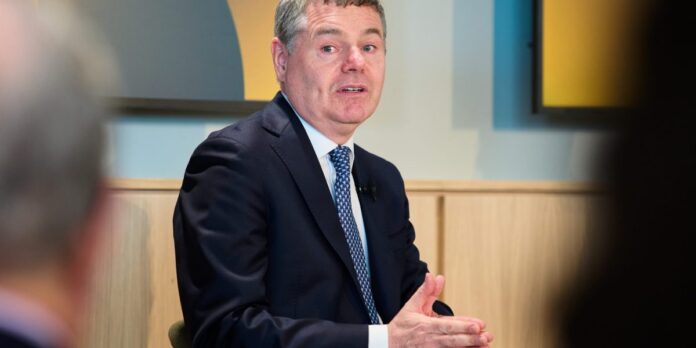Irish Finance Minister Paschal Donohoe said US pharmaceutical tariffs would cost the economy thousands of jobs and that his focus is on maintaining competitiveness to protect the country’s long-term success
Ireland is running a strong fiscal position with a huge budget surplus thanks to corporate tax income from US multinationals such as Apple Inc. and Pfizer Inc. Speaking on Monday at Bloomberg’s Future of Finance in Ireland event in Dublin, Donohoe said that the government must use that surplus with an eye on the longer term.
That’s particularly that case as tariff uncertainty and a global slowdown mean that a large chunk of that tax revenue is at risk. The government is likely to have tighten the purse strings this year — a stark contrast to last year’s budget, which was littered with one-off giveaways for taxpayers.
Pharmaceutical tariffs, if imposed by President Donald Trump, are a key concern. They could cost around 75,000 pharma jobs in Ireland, Donohoe warned.
“I will make every effort possible to protect and prioritize capital investment,” Donohoe said, arguing that cuts carry a long-term cost for the economy, businesses and jobs.
“One of my deep lessons from the aftermath of the global financial crisis is, when capital investment is decreased, the costs mount up in the future,” he said. “If our growth outlook does change, we will use our fiscal position to try to maintain and support capital investment and do all we can to avoid cutting it back again.”
The US administration has repeatedly singled out the Irish model, with Commerce Secretary Howard Lutnick saying Ireland runs a surplus at America’s expense. Trump even raised the matter with Irish Prime Minister Micheal Martin at a St Patrick’s Day White House reception.


